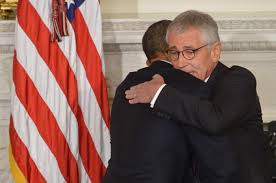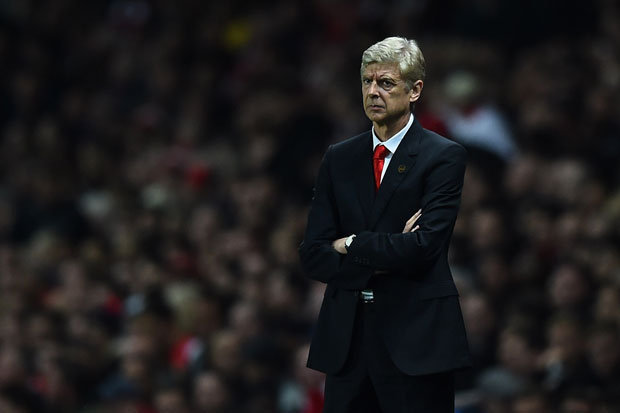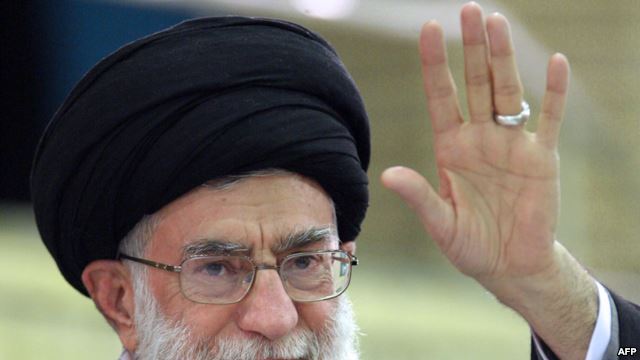Chuck Hagel resigns: Response to Isis threat was central to exit as US Defence Secretary
The departure of Secretary of Defence Chuck Hagel, in an abrupt shake-up of President Barack Obama’s national security team, creates new uncertainty over the direction of American policy, notably regarding the threat posed by Isis and the US role in Afghanistan.
While there had been chatter for a while of tensions between Mr Hagel – a former Republican Senator from Nebraska – and the White House, his ousting after barely two years caught many in Washington off guard and will unsettle America’s allies. He will remain in the job until a successor is found.
That process is likely to be fraught. Whomever is chosen by Mr Obama to take Mr Hagel’s place – and there is talk of his favouring former under-secretary of defence Michele Flournoy – ensuring that they win confirmation in a Senate that after January will have a Republican majority will not be simple. There seemed little doubt that Mr Hagel, 68, was bowing out under pressure, even though officials said the decision had been reached by “mutual” agreement. Discussions about his position had been ongoing for some weeks. He submitted his resignation on Monday morning and Mr Obama quickly accepted it.
Mr Hagel, who was the first enlisted soldier to serve as Secretary of Defence and a veteran of the Vietnam war, was popular with the ranks. He was thanked fulsomely by Mr Obama at a White House ceremony confirming the reshuffle also attended by Vice-President Joe Biden.
Mr Hagel is the first senior member to leave the cabinet since the Republican sweep in midterm elections on 4 November. Mr Obama, who on several fronts has appeared to take on a more assertive pose since those elections, called him an “exemplary defence secretary” who has “devoted himself to our national security and our men and women in uniform across six decades”. He also said he valued the fact that Mr Hagel had “given it to me straight” in private conversations about policy in the Oval Office.
That was seen by some, however, as a polite reference to what had been deepening disagreements between the two men. For his part, Mr Hagel is known to have been frustrated by his inability to penetrate the tight circle of national security advisors around Mr Obama.
Mr Hagel is also surely taking the fall for what, by any standards, has been a rocky period for American foreign and defence policy that has left Mr Obama appearing always to be playing catch-up with events overseas rather than being in control of them. That sense of his floundering has cost him dearly.
Many critical policy questions – all of key interest to America’s allies, including Britain – remain unresolved and the replacing of Mr Hagel may be the moment they are met head-on. Certainly that is what Republicans are bound to press hard for.
“This personnel change must be part of a larger re-thinking of our strategy to confront the threats we face abroad, especially the threat posed by the rise of ISIL,” John Boehner, the House speaker, said in a statement, using a different acronym for Isis.
On Afghanistan, Mr Obama is rumoured to be preparing to reverse himself and allow a small number of soldiers to stay in the country beyond the end of the year, with limited combat roles.
On Isis, few in Washington doubt that Mr Obama will have to confront more squarely the realities on the ground and whether he can hold to his promise to the American people not to deploy ground troops to defeat it.
Many in the US military, including General Martin Dempsey, the Chairman of the Joint Chiefs, have made clear their view that some combat role for US soldiers may become necessary.
If Mr Obama, who was elected on a promise to end American involvement in wars overseas, especially in Iraq and Afghanistan, is preparing to embrace a more forceful pose in the last quarter of his presidency, then cutting Mr Hagel loose may be part of the shift. That surely is the hope of Republicans who will attempt to use hearings to confirm his success to push the US onto a newly hawkish track.
Critically, the person likely to run those hearings, as the likely next chair of the Senate Armed Services Committee, is Senator John McCain. He will be maneouvering to ensure that in the end it is effectively he who picks America’s next defence secretary and not Mr Obama.
The Arizona hawk has criticised Mr Obama relentlessly for being flabby on Syria and Iraq policy and has lamented the withdrawal from Afghanistan and Iraq.
Today, he said Mr Hagel had been “frustrated with aspects of the administration’s national security policy and decision-making process”.
He added: “His predecessors have spoken about the excessive micromanagement they faced from the White House and how that made it more difficult to do their jobs successfully. Chuck’s situation was no different.”
As a possible candidate, Ms Flournoy, who was number three in the Pentagon in Mr Obama’s first term, has respect on both sides of the aisle from Congress and is considered a centrist.
Mr Obama may be tempted to nominate her in part because she would make the first female US defence secretary.
Other names being mentioned today were Senator Jack Reed, Democrat of Rhode Island and a former officer with the Army’s 82nd Airborne; and Ashton Carter, a former deputy secretary of defence.














